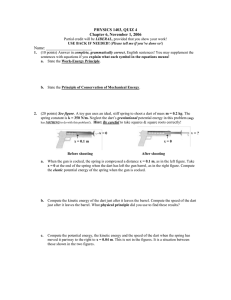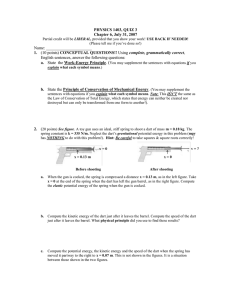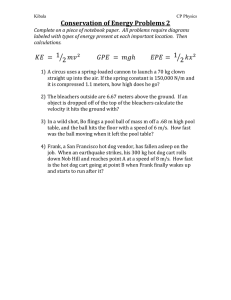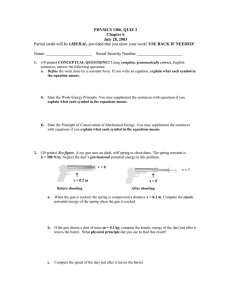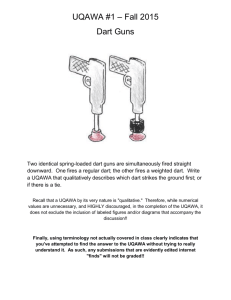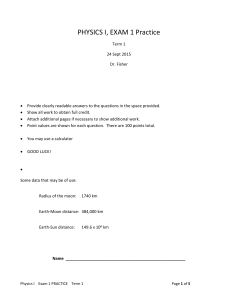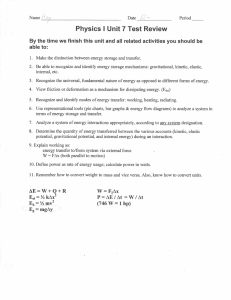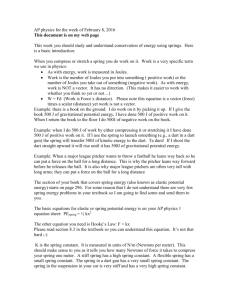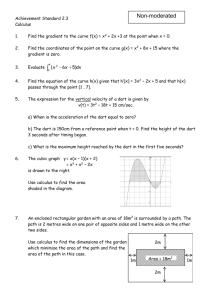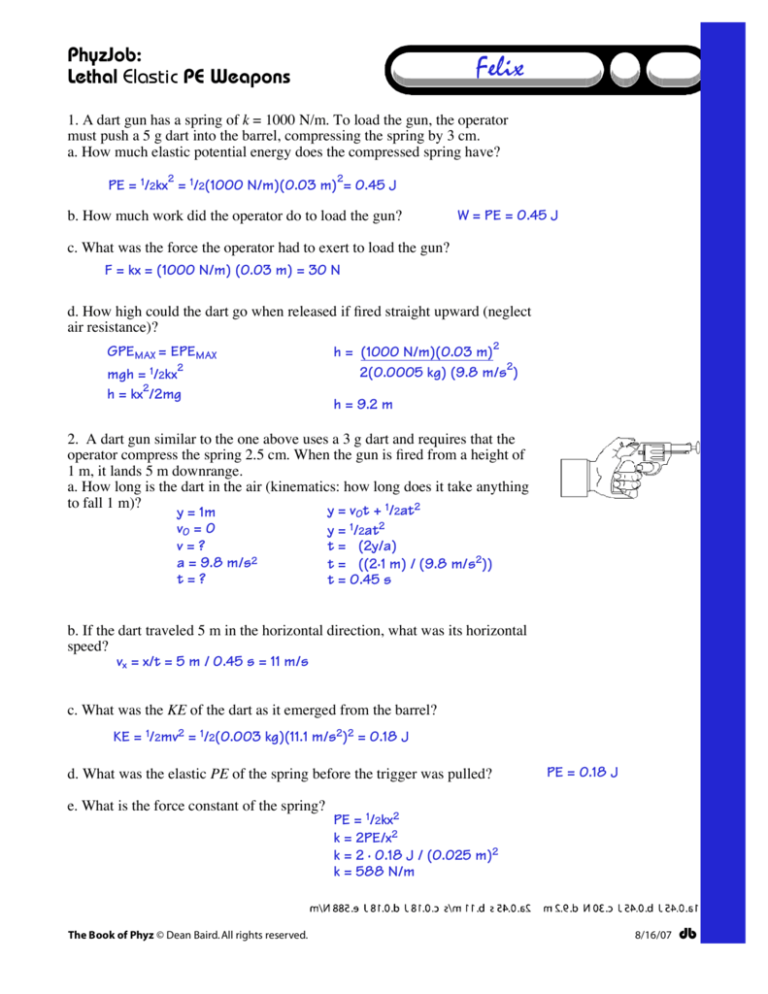
PhyzJob:
Lethal Elastic PE Weapons
Felix
1. A dart gun has a spring of k = 1000 N/m. To load the gun, the operator
must push a 5 g dart into the barrel, compressing the spring by 3 cm.
a. How much elastic potential energy does the compressed spring have?
PE = 1/2kx2 = 1/2(1000 N/m)(0.03 m)2= 0.45 J
b. How much work did the operator do to load the gun?
W = PE = 0.45 J
c. What was the force the operator had to exert to load the gun?
F = kx = (1000 N/m) (0.03 m) = 30 N
d. How high could the dart go when released if fired straight upward (neglect
air resistance)?
GPEMAX = EPEMAX
mgh = 1/2kx2
h = kx2/2mg
h = (1000 N/m)(0.03 m)2
2(0.0005 kg) (9.8 m/s2)
h = 9.2 m
2. A dart gun similar to the one above uses a 3 g dart and requires that the
operator compress the spring 2.5 cm. When the gun is fired from a height of
1 m, it lands 5 m downrange.
a. How long is the dart in the air (kinematics: how long does it take anything
to fall 1 m)?
y = v0t + 1/2at2
y = 1m
v0 = 0
y = 1/2at2
v=?
t = (2y/a)
2
a = 9.8 m/s
t = ((2·1 m) / (9.8 m/s2))
t=?
t = 0.45 s
b. If the dart traveled 5 m in the horizontal direction, what was its horizontal
speed?
vx = x/t = 5 m / 0.45 s = 11 m/s
c. What was the KE of the dart as it emerged from the barrel?
KE = 1/2mv2 = 1/2(0.003 kg)(11.1 m/s2)2 = 0.18 J
d. What was the elastic PE of the spring before the trigger was pulled?
e. What is the force constant of the spring?
The Book of Phyz © Dean Baird. All rights reserved.
PE = 0.18 J
PE = 1/2kx2
k = 2PE/x2
k = 2 · 0.18 J / (0.025 m)2
k = 588 N/m
8/16/07
db

